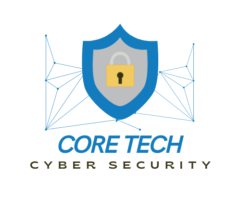Selecting a secure web hosting provider is critical for safeguarding your business’s online presence. With cyber threats becoming increasingly sophisticated, it’s essential to choose a hosting provider that offers robust security features. Here’s a guide to help you choose the right secure web hosting for your business:
1. Evaluate Security Features
Ensure the hosting provider offers comprehensive security features to protect your website and data:
- SSL/TLS Certificates: Verify that the provider includes SSL/TLS certificates to encrypt data transmitted between your website and its visitors.
- Firewall Protection: Look for firewalls that filter and block malicious traffic.
- DDoS Protection: Ensure the provider offers protection against Distributed Denial of Service attacks, which can overwhelm your website with traffic.
- Malware Scanning and Removal: Check if the provider offers regular malware scanning and automatic removal services.
- Intrusion Detection and Prevention Systems (IDPS): These systems monitor and prevent unauthorized access to your website and server.
2. Consider Backup and Recovery Options
Regular backups are crucial for disaster recovery and data protection:
- Automated Backups: Ensure the provider performs automated backups of your website and databases.
- Backup Frequency: Verify how often backups are performed (daily, weekly, etc.).
- Backup Storage: Check where backups are stored and how easily they can be restored in case of an emergency.
3. Look for Strong Authentication Methods
Strong authentication methods help secure access to your hosting account and website:
- Two-Factor Authentication (2FA): Ensure the provider supports 2FA to add an extra layer of security during login.
- Secure Password Policies: Check if the provider enforces strong password policies and provides tools for managing passwords securely.
4. Assess the Hosting Provider’s Reputation
Research the hosting provider’s reputation and track record in the industry:
- Customer Reviews: Read reviews and testimonials from current and past customers to gauge the provider’s reliability and security.
- Industry Certifications: Look for certifications and compliance with industry standards, such as PCI-DSS for payment processing or GDPR for data protection.
5. Evaluate Customer Support
Effective customer support is essential for resolving security issues promptly:
- 24/7 Support: Ensure the provider offers round-the-clock customer support to address any security concerns or issues.
- Support Channels: Check if support is available through multiple channels, such as live chat, phone, and email.
6. Check for Regular Software Updates
Regular updates are critical for maintaining security:
- Automatic Updates: Look for providers that offer automatic updates for software, including the operating system, server software, and applications.
- Patch Management: Ensure the provider has a robust patch management process to address vulnerabilities promptly.
7. Review Compliance and Privacy Policies
Ensure the hosting provider complies with relevant regulations and privacy standards:
- Data Protection Regulations: Verify that the provider complies with data protection regulations, such as GDPR or CCPA.
- Privacy Policies: Review the provider’s privacy policies to understand how your data will be handled and protected.
8. Understand the Hosting Architecture
The hosting architecture can impact the overall security of your website:
- Dedicated vs. Shared Hosting: Dedicated hosting offers better security as you have exclusive access to the server, while shared hosting may expose you to risks from other users on the same server.
- Virtual Private Servers (VPS): VPS provides a balance between cost and security, offering dedicated resources while sharing a physical server.
9. Consider Scalability and Performance
A secure hosting provider should also offer scalability and performance to handle growth and traffic spikes:
- Scalability: Choose a provider that allows you to easily upgrade resources as your business grows.
- Performance: Ensure the provider offers high uptime and fast load times to maintain a positive user experience.
10. Evaluate Additional Security Features
Look for additional security features that enhance overall protection:
- Content Delivery Network (CDN): A CDN helps protect against DDoS attacks and improves website performance by distributing content across multiple servers.
- Web Application Firewall (WAF): A WAF provides an extra layer of security by filtering and monitoring HTTP traffic between your web application and the internet.
Conclusion
Choosing secure web hosting for your business involves evaluating a range of factors, including security features, backup options, authentication methods, and customer support. By considering these aspects and selecting a provider with a strong reputation and comprehensive security measures, you can ensure your website and data remain protected from potential threats. Prioritizing security in your hosting choice will help safeguard your business’s online presence and maintain the trust of your customers.
